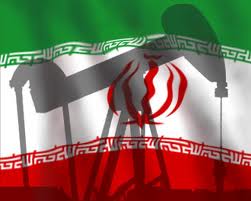 Oil prices fell early Monday in Asia, as a nuclear accord between Iran and six world powers eased geopolitical tensions.
Oil prices fell early Monday in Asia, as a nuclear accord between Iran and six world powers eased geopolitical tensions.
The deal may pave the way for more crude oil to reach the global market.
The U.S. and five other world powers struck a historic accord with Iran on Sunday, agreeing to ease part of an economic stranglehold in exchange for steps to cap Tehran’s nuclear program. The accord aims to ensure that the Islamist government doesn’t rush to develop atomic weapons.
Iran, in return, will gain relief from Western economic sanctions that U.S. officials believe will provide between $6 billion and $7 billion in badly needed foreign exchange for Tehran over the next six months.
Crude oil for January delivery opened $0.84 lower at $94.00 a barrel on the New York Mercantile Exchange on Monday. ICE Brent crude oil for January delivery, the European benchmark, fell $2.61 at $108.44 a barrel.
“Right now we are taking some geopolitical risk out of the Brent market, that should be expected and we could see some loosening of Brent supplies going forward as a result of this interim deal,” said Chicago-based Jim Ritterbusch, president of oil-trading advisory firm Ritterbusch & Associates.
“My feeling is that we will see some consolidation around $108 or $109,” he said.
Investors and analysts say the possibility that Iran’s remaining exports are cut off, or that a conflict with Iran disrupts Middle Eastern oil production, keeps the price of crude $5 to $10 a barrel higher.
Also, Iran’s oil reserves are among the world’s largest, though its exports have dropped off as the U.S. and Europe tightened sanctions. Iran exported 1.5 million barrels a day in 2012, down from 2.5 million barrels a day in 2011, according to the Energy Information Administration.
Still, Iran’s membership in the Organization of the Petroleum Exporting Countries could mitigate any impact on the global energy market because any increase in Iran’s output could be met with supply cuts from Saudi Arabia or other OPEC members.
“If the Western Powers are happy with the situation, it does open the door somewhere further down the line that Iran may return to the markets in a normal capacity,” said Stuart Ive, a Wellington-based senior client adviser at OM Financial. “This doesn’t mean there will be a new flood of oil coming into the market because Iran is in OPEC and any increased flow from Iran has to be within quotas.”
WSJ

Leave a Reply
You must be logged in to post a comment.